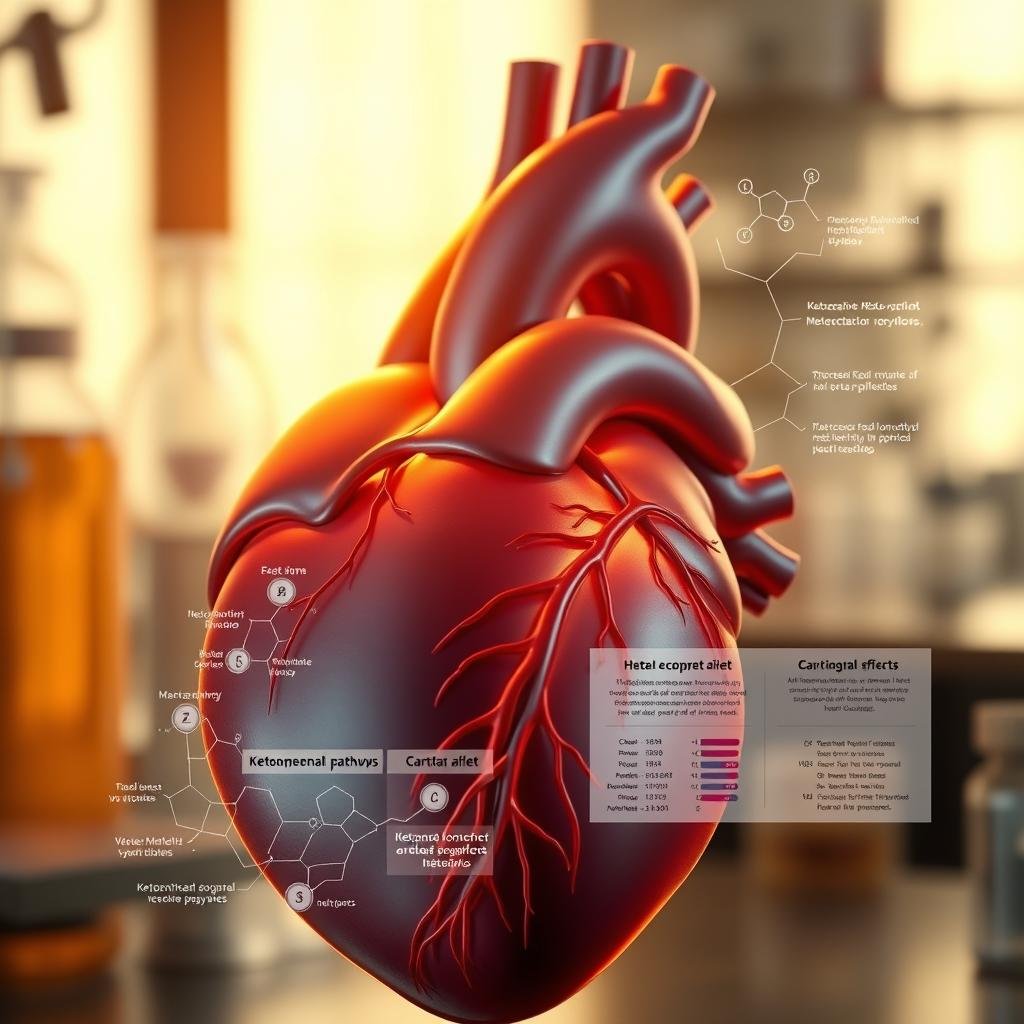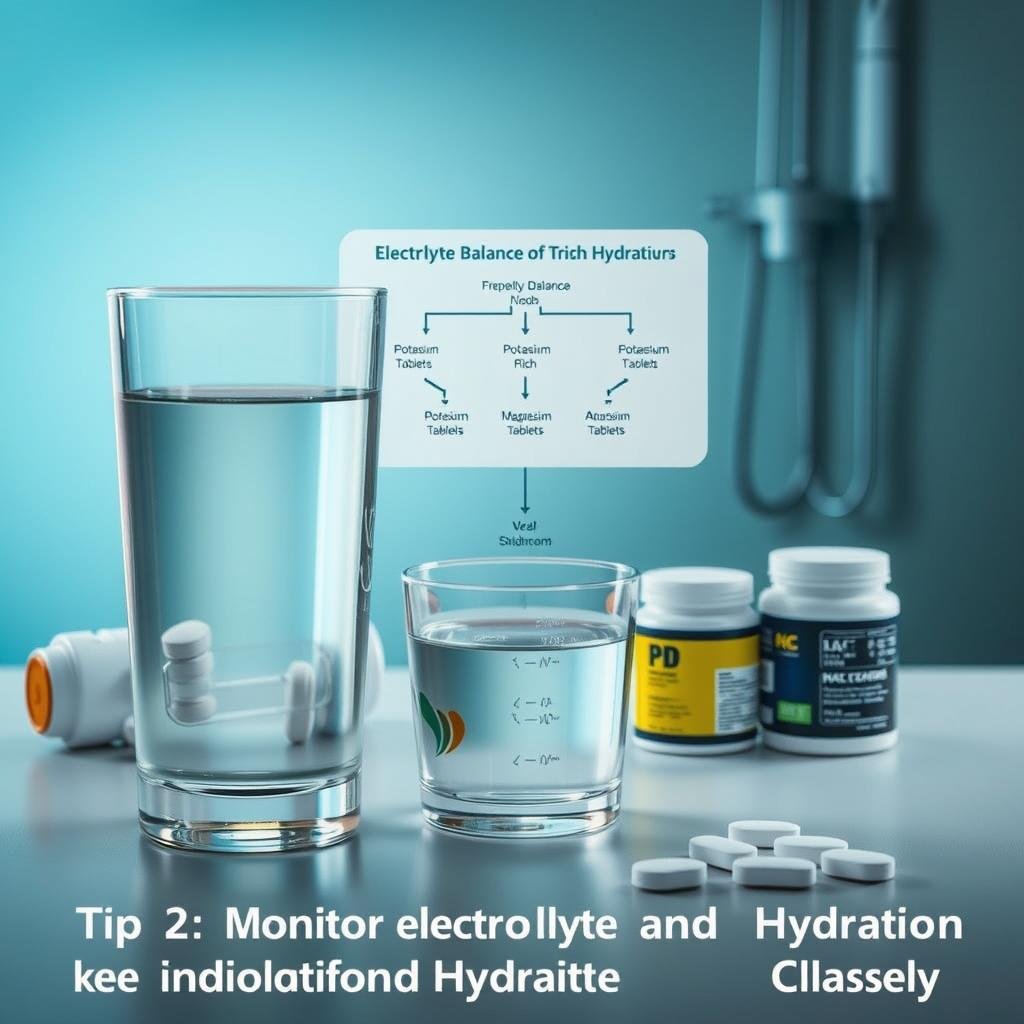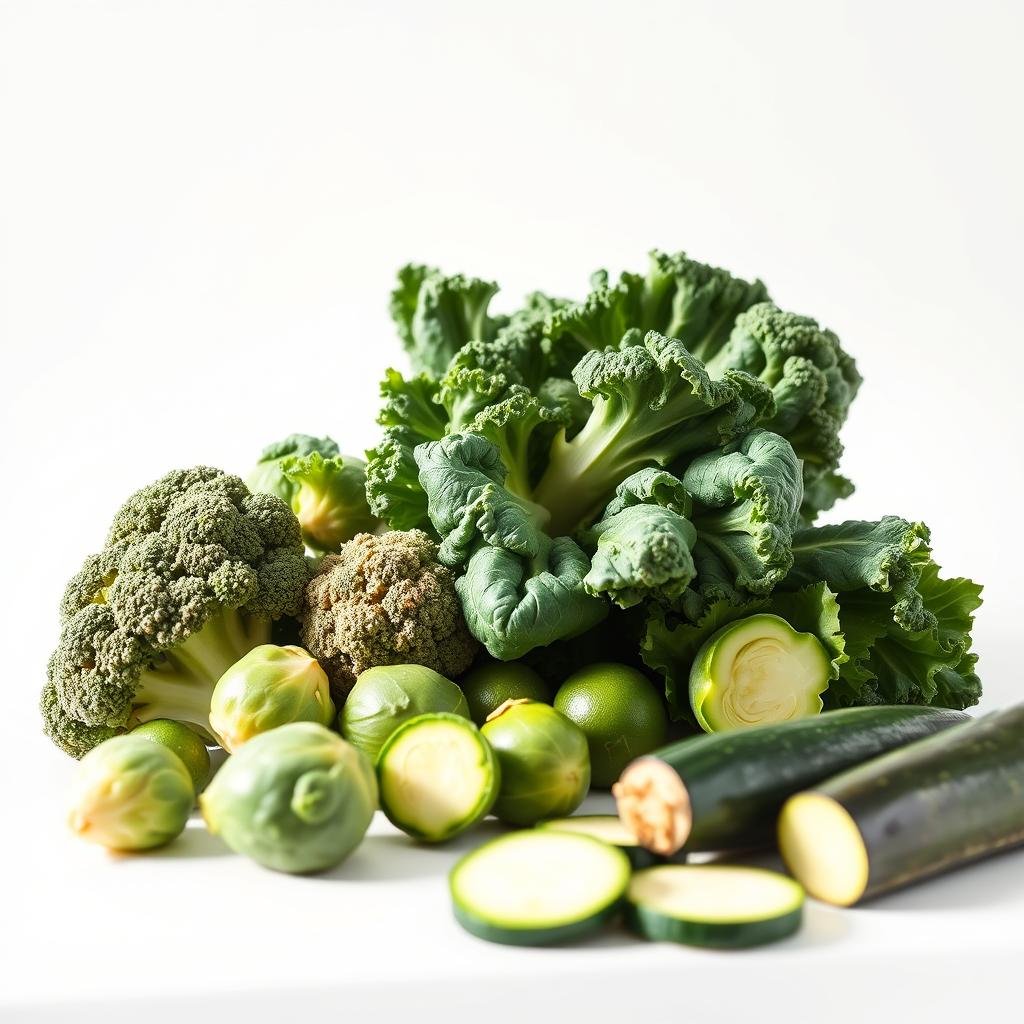When my dad had coronary bypass surgery last year, I saw how important food was for his recovery. A heart bypass procedure makes new paths for blood flow around blocked arteries. It uses vessels from other parts of the body. The healing time is usually 6-8 weeks, sometimes up to three months.
What you eat is very important during this time. The right heart bypass recovery diet can help you heal faster and avoid complications. It can also make your heart stronger. The keto after heart bypass might be a good choice for this.
The keto diet is all about eating lots of fat, some protein, and very few carbs. It helps your body use fat for energy. But, it’s important to think carefully about this diet, even more so for seniors after heart surgery.
I’ve put together a guide with seven tips for safely using keto in your recovery. Each tip is based on science and is easy to follow. But, always talk to your doctor before making any big changes to your diet.
Understanding Heart Bypass Surgery and Recovery
Heart bypass surgery and recovery have many important steps. Patients need to understand these to heal well. Before trying a heart bypass recovery diet, it’s key to know what the surgery is and why recovery is important.
What Happens During a Heart Bypass Procedure
Heart bypass surgery, also called coronary artery bypass grafting (CABG), is done when arteries are blocked or narrowed. Surgeons make new paths for blood to reach the heart muscle.
They use blood vessels from your body, like your leg or arm, to connect to the heart’s arteries. This creates “bypasses” around the blockages, letting blood flow to the heart muscle again.
Most people need more than one bypass, like a “triple bypass” or “quadruple bypass.” The surgery takes 3-6 hours. A heart-lung machine keeps blood flowing while the surgeons work on the heart.
The Critical Recovery Period
Recovering from heart bypass surgery takes time. It can take 6-8 weeks to 3 months, and everyone heals differently.
Before leaving the hospital, you’ll get important instructions. These cover exercise limits, medication, follow-up visits, and wound care. Following these guidelines is vital for healing.
Joining a cardiac rehabilitation program is key to recovery. These programs offer exercise, heart health education, and emotional support. Studies show that those who do rehab have better outcomes and fewer problems.
In the first weeks, you might feel tired, sore, and emotionally changed. These feelings are normal as your body heals from surgery.
Why Nutrition Matters After Surgery
Your food choices are very important when recovering from bypass with keto or any diet. Good nutrition helps your body repair, fight off infections, and get stronger.
After surgery, your body needs more protein and calories to heal. Vitamins like C and zinc, omega-3 fatty acids, and fiber are also important. They help with wound healing, inflammation, and prevent constipation.
Traditional post-op keto guidelines focus on low-fat diets. These diets include fruits, veggies, whole grains, lean proteins, and less saturated fats. But, new research suggests other diets might be better for some patients.
Bad nutrition can cause problems like slow wound healing, infections, muscle loss, and fatigue. Good nutrition can speed up healing, boost energy, and lower the chance of heart problems later.
Your diet affects not just your recovery but also your long-term heart health. Knowing about different diets, like keto, is important for bypass patients. It helps them recover better and prevent future heart issues.
The Role of Diet in Post-Bypass Recovery
Nutrition is key after heart bypass surgery. It helps your body heal and protects against future problems. The foods you eat in the weeks and months after surgery affect your healing speed, energy, and heart health.

Nutritional Needs During Healing
Your body needs special nutrients to repair itself after surgery. Protein is very important for healing and keeping your immune system strong.
After surgery, you might need more calories to heal. But these calories should come from foods that are full of nutrients, not empty calories.
Important nutrients for healing include:
- Vitamin C and zinc for wound healing and collagen formation
- B vitamins for energy and nerve function
- Antioxidants to fight off surgical inflammation
- Omega-3 fatty acids to reduce inflammation
- Fiber to prevent constipation, a common problem after surgery
Many patients don’t feel like eating after surgery. This is why some are looking into heart-healthy keto tips for better nutrition.
Follow these safe tips with our Keto over 60 guide , keto recipes for seniors and include workouts from senior keto workouts.
How Diet Affects Cardiovascular Health
Your diet affects your heart health in many ways. It can change your blood lipid profiles, inflammation levels, and blood pressure.
Blood lipid profiles change quickly with diet. The fats you eat can improve or worsen your cholesterol levels. Some fats can even reduce inflammation in blood vessels.
Inflammation levels depend on what you eat. Processed foods and refined carbs can increase inflammation. But many whole foods have anti-inflammatory effects.
“Diet is the single most important risk factor for disability and death from cardiovascular disease and other chronic diseases. It’s estimated that improvements in diet could prevent 80% of heart disease, stroke, and type 2 diabetes.”
Harvard T.H. Chan School of Public Health
Your diet also affects blood pressure, blood vessel function, and glucose processing. These factors play a big role in heart disease after surgery.
Traditional Dietary Recommendations After Heart Surgery
For years, cardiac patients have followed the same diet after surgery. This diet includes:
- A low-fat diet (low in saturated fat)
- Less sodium (usually under 2,000mg daily)
- More fruits, vegetables, and whole grains
- Less red meat and more lean protein
- Less cholesterol
This diet aims to reduce heart strain and provide essential nutrients. Many hospitals offer meal plans based on these guidelines for post-op meal planning.
But, new research questions if this diet is right for everyone. Some studies suggest that certain fats might be good, not bad. And how much and what kind of carbs you eat might be more important than thought.
This new understanding has led to exploring other diets, like ketogenic nutrition for bypass patients. While traditional diets have helped many, personalized nutrition might offer more benefits for some.
Next, we’ll look at how ketogenic principles can support your recovery while staying heart-healthy. The goal is always to heal well and prevent future heart problems. But the nutritional path to get there might vary based on your needs.
What Is Keto After Heart Bypass?
After heart bypass surgery, some patients think about trying a ketogenic diet for recovery. This diet is different from what most cardiac patients usually follow. It’s important to know what a ketogenic diet is, and how it can help with heart recovery.
The Basics of Ketogenic Nutrition
The ketogenic diet, or “keto,” is a diet low in carbs and high in healthy fats. It limits carbs to 20-50 grams a day, about what’s in a banana or a small rice serving. This low carb intake puts your body into ketosis.
In ketosis, your body uses fat for energy instead of sugar. It makes ketones, which your brain, heart, and other organs use for fuel. It takes 2-4 days of low carbs to start making ketones.
A good keto diet for bypass patients includes:
- Healthy fats (70-80% of calories) from sources like olive oil, avocados, and fatty fish
- Moderate protein (15-20% of calories) from quality sources like poultry, fish, and plant proteins
- Minimal carbohydrates (5-10% of calories) mainly from non-starchy vegetables
How Keto Differs From Standard Post-Cardiac Diets
Traditional advice after heart bypass surgery is to eat low-fat. It suggests:
- Limiting total fat intake, avoiding saturated fats
- Eating more whole grains and complex carbs
- Reducing sodium and cholesterol
- Choosing fruits, vegetables, and lean proteins
Keto is different. It focuses on healthy fats, not avoiding them. It also limits carbs to keep the body in ketosis. This is a big change in how we think about fueling the heart.
Carb intake is also a big difference. Keto diets cut out whole grains, fruits, and starchy veggies. This is to keep the body in ketosis. It’s a big shift in how we fuel the heart during recovery.
Potential Benefits for Recovery
Research shows keto might help after heart bypass surgery. It could reduce inflammation, which is good for healing. Ketones might have anti-inflammatory effects, helping the heart recover.
Keto diets might also improve metabolic markers. Many bypass patients have issues like insulin resistance or high triglycerides. Cutting carbs can help with these problems, supporting heart health long-term.
Another benefit could be better energy use. The heart might prefer ketones as fuel, making energy more efficient. But this is not proven yet.
Even with these benefits, keto is not widely accepted by doctors. It’s important to talk to your healthcare team before trying it. They should include your cardiologist and a dietitian who knows about keto and heart health.
Is Keto Safe After Heart Bypass Surgery?
After heart bypass surgery, many wonder if a ketogenic diet is safe. Nutrition is key in healing and keeping the heart healthy. Traditional diets focus on low-fat, but new research suggests other diets might help too. Let’s look at what science says about is keto safe after bypass surgery and what to consider.
Current Research on Keto and Heart Health
Recent studies on the ketogenic diet and heart health show promise. They suggest that well-formulated ketogenic diets can improve heart health markers. Many patients see a drop in LDL cholesterol levels, but this effect might not last long.
One consistent benefit is an increase in HDL (good) cholesterol levels. This is linked to the high fat intake of ketogenic diets. For heart bypass patients, this could be very beneficial, as higher HDL levels reduce cardiovascular risk.

Weight loss from ketogenic diets can also benefit heart health by lowering blood pressure and reducing inflammation. A 2020 review in the Journal of the American College of Cardiology found that weight loss, through various diets, can improve heart risk factors.
But, not all research is positive. Some studies show that high-fat diets might increase LDL particle size and number in some individuals. The long-term effects of sustained ketosis on the heart are also being studied.
Expert Opinions on Low-Carb Approaches Post-Surgery
Cardiac specialists have different views on ketogenic diets after heart bypass surgery. Some cardiologists cautiously recommend modified low-carb diets for certain patients, like those with insulin resistance or metabolic syndrome.
Dr. Nadir Ali, a cardiologist studying ketogenic diets, believes they may help manage heart disease conditions like diabetes and obesity. He stresses the importance of focusing on healthy fats, not processed meats and dairy.
On the other hand, many cardiac nutritionists are concerned about the high saturated fat in traditional ketogenic diets. They say post-bypass patients need unique nutrition during recovery that may not fit strict carbohydrate restriction. The American Heart Association recommends limiting saturated fat for heart patients, but their stance on total fat has changed.
“The ketogenic diet shows promise for certain cardiac patients, but it’s not a one-size-fits-all solution. Each bypass patient requires individualized nutritional guidance based on their specific cardiac condition, comorbidities, and recovery status.”
– Dr. Sarah Johnson, Cardiac Rehabilitation Specialist
The Importance of Medical Supervision
If you’re thinking about a ketogenic diet and heart disease management after bypass surgery, medical supervision is essential. Your recovery involves complex processes that need careful monitoring, even with dietary changes.
A cardiologist-approved keto plan includes regular blood work to track lipid profiles and kidney function. This ensures the diet is safe and effective. Your cardiologist may also need to adjust medications, as ketogenic diets can affect how certain heart medications work.
Electrolyte imbalances are another risk that needs watching. Ketogenic diets can lead to diuretic effects, altering sodium, potassium, and magnesium levels. These are critical for heart function, and bypass patients may already be on diuretics.
| Consideration | Potential Benefits | Potential Risks | Monitoring Needed |
|---|---|---|---|
| Cholesterol Levels | Possible HDL increase, initial LDL reduction | Potential LDL increase in some individuals | Regular lipid panel testing |
| Weight Management | Effective weight loss, reduced inflammation | Rapid weight loss may stress recovery | Weekly weight checks, body composition analysis |
| Blood Pressure | Often decreases with weight loss | Sodium imbalance can affect BP | Regular BP monitoring, sodium intake tracking |
| Medication Efficacy | May reduce need for some medications | Can alter medication absorption/effectiveness | Medication reviews with cardiologist |
| Nutritional Status | Can improve metabolic markers | Risk of deficiencies without proper planning | Nutrient analysis, possible supplementation |
Never start a ketogenic diet after heart bypass without your healthcare team’s approval. Some patients may not be suitable due to conditions like liver or kidney issues. Your team can determine if keto is right for you based on your health and recovery.
With the right guidance, some heart bypass patients can safely use a modified ketogenic diet in their recovery. The key is personalization, careful monitoring, and ongoing communication with your healthcare providers to support your healing and long-term heart health.
Tip 1: Start with a Heart-Healthy Keto Approach
Starting a heart-healthy keto diet after heart surgery is key. Your heart needs special nutrients that regular keto might not give. By making keto more heart-friendly, you can enjoy ketosis benefits while recovering.
Studies show mixing keto with Mediterranean eating is best for heart health. This mix focuses on good fats and nutrient-rich foods, not just numbers.
Modified Keto vs. Standard Keto
Standard keto diets include lots of fats, like processed meats and full-fat dairy. This might not be good for your heart after surgery.
Modified keto, or “Mediterranean keto,” is better for your heart. It includes anti-inflammatory foods and healthy fats, keeping the low-carb focus of keto.
The main differences are:
- More plant foods and fiber
- Focus on unsaturated fats
- Carb limits are 40-60g daily
- Whole, unprocessed foods are key
- Less red meat is eaten
Heart-Healthy Fat Sources to Prioritize
Not all fats are good for your heart. For heart-healthy keto meals, choose these fats:
- Extra virgin olive oil – Full of monounsaturated fats and antioxidants
- Avocados and avocado oil – Rich in potassium and fiber
- Fatty fish – Salmon, mackerel, and sardines are full of omega-3s
- Nuts and seeds – Walnuts, almonds, flaxseeds, and chia seeds are heart-healthy
- Olives – Good for your heart with antioxidants and fats
But avoid these fats:
- Processed meats (bacon, sausage, deli meats)
- Full-fat dairy products
- Coconut oil (use in small amounts)
- Highly processed “keto” products
Gradual Transition Strategies
Changing your diet after heart surgery should be slow. Don’t jump straight to keto. Follow these heart-healthy keto tips for a safe switch:
- Start with a higher carb threshold – Begin with 50-75g of carbs daily, focusing on nutrient-dense sources like vegetables and berries
- Gradually reduce carbs over 2-4 weeks – This gives your body time to adapt while you monitor how you feel
- Simultaneously increase healthy fats – Add one new fat source at a time to assess tolerance
- Monitor your response – Pay attention to energy levels, digestive comfort, and any cardiac symptoms
- Work with your healthcare team – Regular check-ins help ensure the approach is supporting your recovery
Humans were meant to eat less carbs and more fats and proteins. A study found that a Mediterranean diet, low in carbs but rich in vegetables, fruits, and healthy fats, is best for longevity and heart health.
This Mediterranean-keto mix is perfect for keto for heart health. It lets you get some ketosis while eating foods great for your heart.
Your diet needs might change as you recover. What works at first might need adjusting as you get more active. Always talk to your healthcare team and listen to your body.
Tip 2: Monitor Electrolytes and Hydration Closely
For heart bypass patients on keto, watching electrolytes and hydration is key. The keto diet changes how your body handles minerals, which is tough when your heart is healing. Keeping the right balance helps avoid problems and makes keto easier after surgery.
Why Electrolyte Balance Is Critical After Surgery
Your heart needs the right minerals to work well. After bypass surgery, this balance is even more important. Electrolyte imbalances can cause irregular heartbeats, which are risky for those who’ve had heart surgery.
Medicines like diuretics, often given after heart surgery, can lower your electrolyte levels. These drugs help reduce fluid but also take away important minerals like potassium and magnesium.
The keto diet makes things more complicated. It leads to more water and electrolyte loss through urination. This can cause “keto flu,” which might be mistaken for surgical issues if not managed right.

Recommended Sodium, Potassium, and Magnesium Intake
Sodium intake needs careful attention after heart bypass. While most heart patients should limit sodium, keto followers need enough to avoid low blood sodium. Aim for 3,000-5,000mg daily, guided by your cardiologist and blood pressure.
Potassium is key for heart rhythm. Post-op keto patients should aim for 3,000-4,700mg daily from food. Avocados, leafy greens, and salmon are great sources.
Magnesium is often low on keto diets and can cause muscle cramps and arrhythmias. Aim for 300-400mg daily from foods like nuts, seeds, and leafy greens.
| Electrolyte | Daily Target | Keto-Friendly Sources | Signs of Deficiency | Importance After Surgery |
|---|---|---|---|---|
| Sodium | 3,000-5,000mg | Bone broth, sea salt, olives | Headache, fatigue, nausea | Maintains blood pressure and fluid balance |
| Potassium | 3,000-4,700mg | Avocados, spinach, salmon | Muscle weakness, palpitations | Regulates heart rhythm |
| Magnesium | 300-400mg | Pumpkin seeds, almonds, dark chocolate | Muscle cramps, arrhythmias | Supports muscle function and heart rhythm |
| Calcium | 1,000-1,200mg | Cheese, sardines, leafy greens | Muscle twitching, numbness | Assists with blood clotting and muscle contraction |
Hydration Strategies for Keto Patients
Drinking enough water is even more important on keto after surgery. Aim for 2.5-3.5 liters daily, based on your size and activity. This helps replace lost fluids during ketosis.
Check your hydration by looking at your urine color. Aim for pale straw, not dark yellow. Many find setting hourly water goals helps stay hydrated all day.
Warning signs of dehydration include thirst, dry mouth, dizziness, and heart palpitations. These symptoms are serious after bypass surgery and need quick action. Increase your fluid intake and add more electrolytes if needed.
Keep an electrolyte supplement your cardiologist approves handy, at least in the first few weeks. Sugar-free drinks or tablets can help with “keto flu” symptoms during rehab.
Spreading out your fluid intake throughout the day helps stay hydrated better. This also eases kidney strain, which is good during recovery.
Good electrolyte and hydration management can prevent keto diet side effects like fatigue, headaches, and muscle cramps. This lets you focus on your heart recovery without extra discomfort.
Tip 3: Incorporate Fiber-Rich Low-Carb Vegetables
Adding fiber-rich, nutrient-dense vegetables is key for a successful keto diet after cardiac surgery. Unlike traditional keto diets, heart bypass patients need these veggies for their micronutrients and fiber. Even on a low-carb diet post cardiac surgery, veggies are essential.
Fiber is very important for recovery. It helps control cholesterol, supports digestion, and feeds good gut bacteria. This helps reduce inflammation in your body. You can enjoy many veggies while staying in ketosis by choosing the right ones and preparing them well.
Best Vegetables for Heart Health on Keto
Not all veggies are good for a heart-healthy keto meal plan. Look for ones that are rich in nutrients but low in carbs. Here are some top picks:
- Leafy greens – Spinach, kale, Swiss chard, and arugula are packed with potassium, magnesium, and antioxidants. They’re low in carbs.
- Cruciferous vegetables – Broccoli, cauliflower, Brussels sprouts, and cabbage have compounds that protect your heart and are high in fiber.
- Low-carb favorites – Zucchini, asparagus, bell peppers, and celery are low in carbs but full of nutrients.
- Allium family – Garlic, onions, and leeks support healthy blood pressure and cholesterol levels when used in moderation.
These veggies offer special benefits for bypass recovery. Leafy greens help regulate blood pressure, and cruciferous veggies reduce inflammation. The fiber in all these options helps manage cholesterol, which is vital for heart health.

Preparation Methods That Preserve Nutrients
How you prepare your veggies is important. After bypass surgery, you want to get the most nutrients while keeping meals tasty. Here are some ways to do that:
- Light steaming – Keeps water-soluble vitamins and softens fiber for easier digestion. Great for cruciferous veggies and leafy greens.
- Quick sautéing – Use heart-healthy oils like olive oil to enhance the absorption of fat-soluble vitamins. Perfect for zucchini, bell peppers, and leafy greens.
- Raw preparation – Enjoy veggies like bell peppers and celery raw for maximum enzyme content. Start with small amounts if you’re early in recovery.
- Roasting – Brings out natural sweetness without adding sugar. Use moderate temperatures (around 350°F) to preserve nutrients.
Avoid boiling veggies, as it can lose water-soluble vitamins. Instead, steam or use a pressure cooker to preserve more nutrients than boiling.
Meeting Fiber Needs While Staying in Ketosis
Getting enough fiber on a keto for cardiovascular health diet can be challenging. Most cardiac patients need 25-35g of fiber daily. This requires careful planning on a ketogenic diet.
Choose veggies with a high fiber-to-net-carb ratio. For example, a cup of cooked spinach has about 4g of fiber with only 1g net carbs. A cup of raw cauliflower has 2g fiber with 2g net carbs. By focusing on these, you can meet fiber needs without going over your carb limit.
Here are some tips to boost fiber intake:
- Add small amounts of chia or flax seeds to meals (1-2 tablespoons provide 5-10g of fiber)
- Track net carbs (total carbs minus fiber) instead of total carbs
- Gradually increase fiber intake to avoid digestive discomfort
- Stay well-hydrated to help fiber work effectively
- Consider a fiber supplement if recommended by your healthcare provider
Enough fiber is key for heart health. It helps manage cholesterol, promotes regular bowel movements, and feeds beneficial gut bacteria. This reduces inflammation in your body.
By adding these fiber-rich, low-carb veggies to your meals, you support your heart recovery while keeping the keto diet benefits. This balanced approach helps with both your immediate healing and long-term heart health goals.
Tip 4: Prioritize Lean Protein and Omega-3 Sources
Keto after Heart bypass should focus on certain proteins for better healing and heart health. The proteins you choose are key to staying in ketosis and aiding in recovery. They also play a big role in your long-term heart health.
Choosing the right proteins can help reduce inflammation and support tissue repair. It can also improve your lipid profile.
Optimal Protein Sources After Heart Surgery
After heart bypass surgery, your body needs high-quality protein to repair tissues and support healing. Not all proteins are good for heart health. You want to pick options that give you essential amino acids without too much saturated fat or inflammation.
Fatty fish should be your top protein choice. Salmon, mackerel, and sardines are packed with protein and omega-3s. These omega-3s help reduce inflammation, which is important for recovery.
Lean poultry like skinless chicken and turkey is also good. For plant-based options, tofu and tempeh are complete proteins that fit well into a heart-healthy keto diet.
Eggs are also important in a keto diet for heart health. Egg whites give pure protein, and whole eggs (in moderation) add extra nutrients for recovery. Recent studies have changed the view on whole eggs for cardiac patients. But, it’s best to talk to your doctor about how much to eat.
| Protein Source | Protein Content (per 100g) | Heart Health Benefits | Keto Compatibility | Recommended Frequency |
|---|---|---|---|---|
| Salmon | 20-25g | High omega-3, anti-inflammatory | Excellent | 2-3 times weekly |
| Skinless Chicken | 23-31g | Low saturated fat | Very good | 3-4 times weekly |
| Eggs | 13g | Choline for heart function | Excellent | Daily (in moderation) |
| Tofu | 8-15g | Plant sterols, no cholesterol | Good | 2-3 times weekly |
| Lean Beef | 26-29g | Iron, zinc, B vitamins | Good | 1-2 times weekly |
Incorporating Omega-3 Rich Foods
Omega-3 fatty acids are key for recovery after heart bypass surgery. They help reduce inflammation, improve blood vessel function, and can improve your lipid profile. All these are important for healing and preventing future heart problems.
The American Heart Association suggests eating at least two servings of fatty fish a week. Aim for this minimum while on your keto diet after surgery. Salmon, mackerel, and sardines are great choices for omega-3s and protein.
“The anti-inflammatory effects of omega-3 fatty acids are very beneficial during recovery after heart surgery. They can help reduce complications and support healing.”
– Dr. James O’Keefe, Cardiologist at Saint Luke’s Mid America Heart Institute
For non-fish sources, add flaxseeds and chia seeds to your keto meals. You can grind them and mix into smoothies or use in keto-friendly baking. Walnuts are a great snack that provides omega-3s and healthy fats for ketosis.
If you’re vegetarian or don’t like fish, consider algae-based omega-3 supplements. These give you EPA and DHA directly, without needing to convert from plants, which can be hard for your body.
Balancing Protein Needs with Ketosis
Finding the right balance between enough protein for healing and staying in ketosis is important. After heart bypass surgery, you need more protein, about 1.2-1.5 grams per kilogram of body weight daily. This is more than the usual 0.8g/kg.
But eating too much protein can mess with ketosis by turning into glucose. This doesn’t mean you should cut down on protein, but spread it out throughout the day.
Try to eat 20-30 grams of protein per meal, based on your size and needs. This helps use protein for healing and keeps glucose levels low. As you get better, you can adjust your protein intake based on how active you are and how you feel.
Keep an eye on your ketone levels as you find the right protein balance. If you see your ketosis drop, try adjusting your protein intake a bit. This way, you can keep healing and get the most from your keto diet.
Remember, the quality of your protein matters as much as the amount. Focus on heart-healthy protein sources to support your heart health and help your body heal after surgery.
Tip 5: Track Blood Lipids and Ketones Regularly
For heart bypass patients, tracking blood lipids and ketones is key. It’s not just helpful, it’s essential for safety. The keto diet can help with heart health, but it affects everyone differently.
After bypass surgery, your body is healing. Any diet change needs careful watching. This is why monitoring is so important.
Key Markers to Monitor
When on a ketogenic lifestyle post-bypass, watch several blood markers closely. These markers show how your body reacts to the diet:
- Comprehensive lipid panel: This includes total cholesterol, LDL (bad cholesterol), HDL (good cholesterol), triglycerides, and important ratios like total cholesterol/HDL
- Blood glucose and insulin levels: These markers help assess insulin sensitivity, which often improves on keto
- Inflammatory markers: High-sensitivity C-reactive protein (hs-CRP) can indicate whether inflammation is decreasing
- Blood pressure: Regular monitoring ensures your blood pressure remains stable or improves
- Ketone levels: Both blood and urine ketones confirm you’re maintaining the desired level of ketosis
Research shows that LDL cholesterol might drop at first on keto. But this drop may not last. HDL cholesterol, on the other hand, often goes up with more fat. This can be good for your heart. It’s important to track these changes in your body forketo cholesterol management.
Optimal Testing Frequency
How often should you test these markers when implementing keto after heart bypass? I suggest this testing schedule:
- Baseline testing: Complete a full panel before beginning your ketogenic diet to establish your starting point
- Initial adaptation period: Test more frequently (every 2-4 weeks) during the first three months
- Maintenance phase: Once stabilized, continue testing every 3-6 months
As a heart bypass patient, you should test more often than others on keto. This isn’t something to skip. Regular testing gives you peace of mind and warns you of any problems early. Many cardiologists offer special lipid tests that give more detailed insights.
Work with your healthcare provider to set a testing schedule that fits your needs. Some insurance plans cover more frequent tests for cardiac patients, making it easier to follow.
When to Adjust Your Approach
Not every test result means you need to change your diet. But some patterns should make you think about changing your ketogenic lifestyle post-bypass. Watch out for these warning signs:
- Significant LDL increases without corresponding HDL improvements
- Triglycerides rising above 150 mg/dL
- Unexpected blood pressure changes
- Electrolyte imbalances (particularily potassium and magnesium)
- Excessive ketone levels (above 3.0 mmol/L consistently)
If you see concerning trends, don’t give up on keto right away. Instead, think about these changes:
First, change your fat sources. Try replacing some saturated fats with monounsaturated ones like olive oil, avocados, and nuts. This might improve your lipid profile while keeping you in ketosis.
Second, play with your carb limit. Some cardiac patients do better with a bit more carbs (30-50g daily) than strict keto (under 20g).
Third, think about intermittent fasting if your doctor says it’s okay. This can help with keto cholesterol managementand improve your metabolic flexibility.
If changes don’t help, you might need to switch to a more moderate low-carb diet. Remember, your heart health is more important than sticking to any diet.
The key to successful keto after heart bypass is this partnership between self-monitoring and professional advice. By tracking your markers closely, you create a personalized recovery plan. You make changes based on real data, not guesses.
Tip 6: Adjust Your Macros for Recovery Needs
The sixth tip for keto after heart bypass is to adjust your macronutrients for healing. Bypass patients need a special macro plan for recovery. The right mix of fats, proteins, and carbs helps your body heal faster.
When using ketogenic nutrition for bypass patients, you might need to change keto ratios. There are many keto diets, each with its own way of managing macros:
- Standard ketogenic diet (SKD): 75% fat, 20% protein, and 5% carbs
- Cyclical ketogenic diet (CKD): Alternates between keto days and higher-carb days
- Targeted ketogenic diet (TKD): Allows additional carbs around workout times
- High-protein ketogenic diet: 60% fat, 35% protein, and 5% carbs
For heart bypass recovery, a mix between standard and high-protein keto is often best. This helps with managing weight after heart surgery and tissue repair.
Calculating Ideal Macronutrient Ratios
Calculating your post-bypass macros involves several factors. Your age, weight, activity level, medications, and recovery stage are key. Start with a modified ratio that includes:
- 65-70% calories from heart-healthy fats (lower than standard keto’s 75-80%)
- 20-25% calories from quality protein (higher than standard keto’s 15-20%)
- 5-10% calories from carefully selected carbohydrates
This adjustment helps with keto for cardiovascular recovery and healing. First, figure out your total daily calorie needs based on your weight, height, age, and activity level.
For example, if you need 1,800 calories daily, your macros would be about 130-140g of fat, 90-113g of protein, and 22-45g of carbs. Use a nutrition app to track these values during recovery.
Protein Requirements During Healing
Protein is key during the healing phase after bypass surgery. Your body needs more amino acids for tissue repair and muscle preservation. Unlike standard keto, which limits protein, healing hearts need more.
For optimal recovery, increase your protein intake to 1.2-1.8g per kilogram of body weight. For a 70kg (154lb) person, this means 84-126g of protein daily.
Choose easily digestible, complete protein sources like:
- Fatty fish (salmon, mackerel, sardines)
- Pasture-raised eggs
- Grass-fed meats in moderate portions
- High-quality protein powders (if approved by your doctor)
This higher protein approach aids in wound healing while keeping you in ketosis. Patients often recover faster with more protein in the initial healing phase.
Carb Thresholds for Cardiac Patients
Cardiac patients might need a bit more carbs than standard keto’s 20g daily. Start with 30-50g daily and adjust based on your tolerance and ketone levels.
This higher carb threshold is beneficial for bypass patients:
- Provides additional fiber for heart health and digestion
- Allows for more nutrient-dense vegetables and berries
- Reduces the intensity of the “keto flu” during transition
- Accommodates certain heart medications that may affect glucose metabolism
Choose the right carbs. Focus on nutrient-dense, fiber-rich options like leafy greens, non-starchy vegetables, and small amounts of berries. These choices support heart health and keep your net carbs low for ketosis.
Remember, your macro needs will change throughout recovery. The immediate post-operative period may require more protein and slightly more carbs. Later stages might allow for a more standard ketogenic approach. Always reassess with your healthcare team.
By adjusting your macronutrient ratios, you can use ketogenic nutrition to help your body heal after bypass surgery. This personalized approach makes keto a viable option for cardiovascular recovery.
Tip 7: Combine Keto with Gentle Movement & Stress Management
Recovering from heart bypass surgery is more than just eating right. It also involves gentle exercise and managing stress. A ketogenic diet can help, but it’s even better when combined with movement and stress reduction. This combination supports your heart from different angles.
Safe Exercise After Heart Bypass
Exercise is key in getting better after heart surgery. It boosts circulation, strengthens the heart, and improves fitness. It also helps control blood pressure, weight, and cholesterol, which are all important for heart health.
But, you need to start slowly after surgery. Your chest needs time to heal, and your heart needs to get used to working harder. Here’s how to safely exercise while following a keto diet:
| Recovery Phase | Recommended Activities | Duration/Frequency | Special Considerations for Keto |
|---|---|---|---|
| Weeks 1-2 | Short walks, breathing exercises | 5-10 minutes, 2-3 times daily | Extra hydration, possible fatigue during fat adaptation |
| Weeks 3-4 | Longer walks, light household activities | 10-15 minutes, daily | Monitor electrolytes before activity, adjust salt intake |
| Months 2-3 | Structured walking program, light resistance | 20-30 minutes, 4-5 times weekly | May need slightly higher protein intake for muscle recovery |
| Beyond Month 3 | Cardiac rehab exercises, moderate activity | 30-45 minutes, 5 times weekly | Consider targeted carbs around workouts if needed |
Important safety tips: Start with short walks and gradually increase the distance and intensity. Daily walks are great for establishing a routine. Stop if you experience chest pain, shortness of breath, or dizziness.
Those on a keto diet after bypass surgery might feel less energetic at first. This feeling usually goes away in 2-4 weeks as your body adapts.
Stress Reduction Techniques That Complement Keto
Managing stress is key during recovery. Chronic stress can raise cortisol levels, which can hurt your heart health and ketosis. Using stress reduction techniques can help your body heal better.
Here are some stress management methods that work well with keto:
- Mindfulness meditation – Helps reduce stress-induced glucose spikes that can interfere with ketosis
- Gentle yoga – Improves flexibility and reduces tension (with modifications to protect your healing sternum)
- Deep breathing practices – Activates the parasympathetic nervous system, reducing stress hormones
- Progressive muscle relaxation – Releases physical tension that often accompanies recovery
- Nature exposure – Spending time outdoors has been shown to lower cortisol levels
“The most successful cardiac rehabilitation programs address the whole person—not just diet or exercise in isolation. When patients combine nutritional changes with appropriate physical activity and stress management, we see significantly better outcomes in both the short and long term.”
Dr. Sarah Johnson, Cardiac Rehabilitation Specialist
Even just 10-15 minutes of daily stress reduction can make a big difference. Many find these techniques help with physical healing and sticking to their keto diet.
Creating a Holistic Recovery Plan
A good recovery plan covers all aspects of health. Here’s how to make a plan that uses keto for cardiac rehabilitation effectively:
- Nutritional foundation – Follow a heart-healthy ketogenic diet, focusing on omega-3 rich foods, fiber, and electrolytes
- Graduated movement – Start with the right exercise for your stage, gradually increasing as you get stronger
- Stress management routine – Practice at least one stress reduction technique daily
- Quality sleep – Aim for 7-8 hours of restful sleep to support healing and metabolic health
- Social connection – Keep relationships that offer emotional support during recovery
These elements work together well. Proper nutrition helps with exercise, exercise improves insulin sensitivity (which helps with ketosis), and stress reduction improves metabolic and cardiovascular health. Together, they offer more benefits than any single approach.
Keep track of your progress with a journal or app. Note how you feel after different activities, how your energy levels respond to keto meals, and which stress management techniques work best. This helps you refine your approach as you recover.
Remember, recovery is unique to each person. Work with your healthcare team to adjust your plan based on your specific needs and progress. With patience and consistency, this approach can support a strong recovery and help you maintain good heart health long-term.
Heart-Safe Keto Meal Planning
Creating a heart-healthy keto meal plan after bypass surgery combines ketosis with heart health. When working with post-cardiac surgery patients, I stress that meal planning is more than just keto. It’s about a sustainable approach that supports heart healing. This thoughtful planning reduces stress and ensures your nutritional needs are met.
Foods to Avoid After Heart Bypass
After heart bypass surgery, some foods can hinder recovery or harm your heart health, even on keto. A heart-safe keto approach means avoiding these foods carefully.
Inflammatory Foods can increase oxidative stress and hinder healing. These include:
- Processed meats (bacon, sausage, deli meats with nitrates/nitrites)
- Fried foods and anything cooked in partially hydrogenated oils
- Refined vegetable oils high in omega-6 fatty acids (corn, soybean, safflower)
- Artificial sweeteners and sugar alcohols that may cause inflammation
High-Sodium Items contribute to fluid retention and increased blood pressure—both dangerous after cardiac surgery:
- Processed and packaged foods with added salt
- Canned soups and broths (unless low-sodium)
- Commercial salad dressings and condiments
- Pre-seasoned meat products and marinades
Also, avoid foods that negatively impact lipid profiles, such as excessive amounts of certain saturated fats. While some saturated fat is okay on keto, focus on heart-healthy fats instead of:
- Large amounts of butter and ghee
- Fatty cuts of red meat
- Full-fat dairy products from conventional sources
- Coconut oil as your primary fat (use in moderation)
Be cautious with foods that may interact with medications, including:
- Grapefruit and grapefruit juice (interacts with statins and other medications)
- Foods high in vitamin K if you’re on blood thinners (consistency is key)
- Excessive caffeine, which can affect heart rhythm
Sample 1-Day Heart-Healthy Keto Meal Plan
This meal plan is for seniors recovering from heart bypass surgery. It has about 1,700 calories, with 70% fat, 23% protein, and 7% carbs. This is perfect for staying in ketosis while supporting recovery.
| Meal | Menu | Heart-Healthy Features | Calories | Macros (F/P/C) |
|---|---|---|---|---|
| Breakfast | Greek yogurt bowl with 1/4 cup full-fat Greek yogurt, 1/4 cup berries, 1 tbsp ground flaxseed, 1 tbsp chia seeds, 2 tbsp chopped walnuts | Omega-3 fatty acids, antioxidants, probiotics | 380 | 28g/15g/12g |
| Lunch | Poached salmon (4oz) over mixed greens with cucumber, avocado, and olive oil-lemon dressing (2 tbsp) | Marine omega-3s, monounsaturated fats, potassium | 450 | 32g/28g/6g |
| Snack | 1/4 cup unsalted almonds and 1 oz aged cheese | Magnesium, calcium, healthy fats | 270 | 22g/12g/5g |
| Dinner | Mediterranean chicken thigh (5oz) with olive oil, garlic, and herbs; side of roasted asparagus and cauliflower with 1 tbsp olive oil | Anti-inflammatory herbs, fiber, potassium | 600 | 42g/35g/8g |
This meal plan is low in sodium and provides essential nutrients for healing. Drink at least 8-10 cups of water a day to stay hydrated. This is key for recovery and preventing keto dehydration.
For medication timing, take morning meds with breakfast and evening meds with dinner unless your doctor says differently. This keeps your medication levels consistent.
Meal Prep Strategies for Recovery
During recovery, your energy levels will change. Meal prep is essential for keeping your heart-healthy keto plan. I’ve developed strategies for post-bypass patients:
Batch cook protein sources for various meals. Roast a whole chicken or poach salmon fillets on Sunday. Store them in individual portions for easy access.
Prepare vegetable bases for quick meal assembly. Pre-wash and chop low-carb veggies like bell peppers, zucchini, and leafy greens. Store them in glass containers with paper towels to keep them fresh.
Use time-saving tools to reduce cooking effort. Slow cookers and pressure cookers make complete meals easy. A food processor helps with chopping veggies when standing is hard.
I always suggest enlisting family support during the initial recovery. Create a simple meal plan for family members to follow. Label containers clearly with contents and dates to help them assist.
Organize your kitchen to reduce movement and reaching. Place keto ingredients at eye level in cabinets and fridge. Keep a dedicated drawer for heart-healthy snacks that meet your macronutrient needs.
Remember, proper post-op keto meal planning is not just about convenience. It’s a key part of your recovery. By avoiding bad foods, following a structured meal plan, and using smart prep strategies, you can enjoy keto’s benefits while protecting your heart.
Conclusion
In this guide, I’ve shared seven tips for keto after heart bypass surgery. These tips focus on your heart health. They include eating heart-healthy keto, watching your electrolytes, and adding fiber-rich veggies.
Choosing quality proteins and tracking your blood markers are also key. Adjusting your macros and moving gently are important too. Each tip helps support your recovery.
The question “is keto after bypass surgery safe?” has no simple answer. Your medical history, surgery details, and recovery progress matter. The diet you choose must fit your needs.
Always check with your cardiologist before starting keto. Be ready to change or stop if needed. Small, gradual changes are safer during recovery.
Your healthcare team is essential in exploring nutrition options. They can guide you based on your body’s response. Nutrition is just one part of your recovery.
With careful planning and medical guidance, keto might help some bypass patients. Focus on heart-healthy fats, quality proteins, and nutrient-rich veggies. This can lead to a sustainable diet that supports your heart health and helps you regain strength.
FAQ
How soon after heart bypass surgery can I start a ketogenic diet?
Will a ketogenic diet raise my cholesterol after heart bypass surgery?
Can I take my heart medications while on a ketogenic diet?
How will I know if the ketogenic diet is helping my recovery?
What are the most heart-healthy fats to include in a post-bypass ketogenic diet?
Is the “keto flu” dangerous for heart bypass patients?
How much protein should I eat on keto after heart bypass surgery?
Can I do intermittent fasting along with keto after heart surgery?
What vegetables are best for a heart-healthy ketogenic diet?
How do I maintain ketosis while taking cardiac medications?
Is keto after heart bypass appropriate for seniors?
How does keto affect blood pressure after heart surgery?
What are the signs that keto isn’t working well for my cardiac recovery?
Can I drink alcohol on a ketogenic diet after heart bypass?
How do I handle dining out on a heart-healthy keto diet?

I’ve followed a low-carb and ketogenic lifestyle for over five years, gaining hands-on experience with what is practical, sustainable, and realistic in daily life. My work is informed by continuous self-education through reputable nutrition research and publicly available medical literature.
Read more about the founder →



